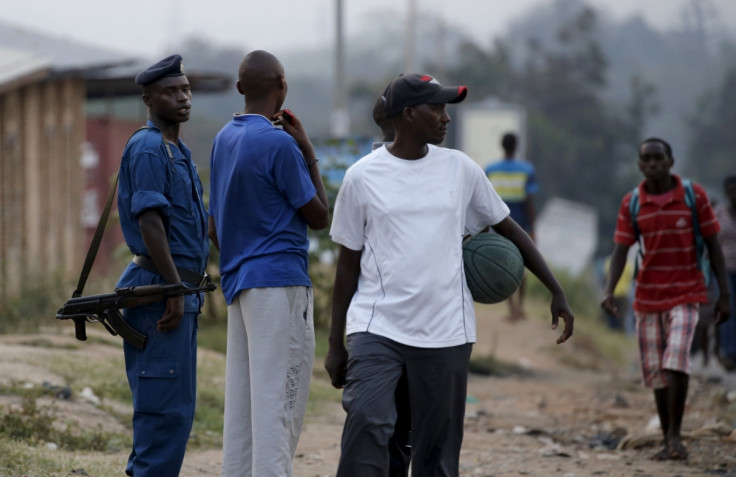Burundi: Genocide fear has UN on alert to deploy troops from DRC to keep peace

The United Nations has announced it is considering whether to move peacekeepers from the Democratic Republic of Congo (DRC) to Burundi amid fears the country might be on the brink of a genocide, following months of political instability. UN officials said the move is being considered to prevent Burundi from enacting a Rwanda-style genocide.
The announcement was made days after Rwandan President Paul Kagame urged neighbouring Burundi to learn from history and prevent mass-scale killings. The UN also admitted it is less equipped to deal with violence in Burundi then it was during the 1994 Rwanda genocide.
Burundi
Capital: Bujumbura.
Population: 10.6 million of whom 85% are Hutus, 14% Tutsis, and 1% Twas.
Official languages: Kirundi, French, English.
Colonisation era: Burundi and Rwanda were German colonies from the 19<sup>th century until the end of the Second World War. Then Belgium took control of the so-called "Rwanda-Urundi", modern day Rwanda and Burundi.
Burundi gained independence and established a constitutional monarchy in 1962. It became a republic in 1966.
Civil war: The first democratically elected Hutu president, Melchior Ndadaye, was assassinated by Tutsi extremists three months after taking office in 1993. Hutus started massacring Tutsis and in retaliation, the army, mainly composed of Tutsis, killed thousands of Hutus.
This sparked civil war, which claimed at least 300,000 lives.
Some 20,000 peacekeepers from Monusco - the UN mission in DRC - were deployed in the country in 2010 with the aim to protect civilians, humanitarian personnel and human rights defenders as violence among different rebel groups threatened the stability of the country.
"One option is to get Monusco troops from the DRC across the border into Burundi," a UN security council diplomat told AFP under conditions of anonymity. He also explained that troops from South Africa, Malawi and Tanzania that are backing Monusco could also be deployed to Burundi.
A UN spokesperson said: "While this is ultimately a matter for the Security Council to decide, a regional coalition would be well-placed to provide a rapid and credible response if the situation in Burundi worsens."
The UN Security Council is to vote on a French-drafted resolution that considers sanctions against Burundians accused of inciting violence.
Burundi crisis
Burundi's recent crisis was spurred by President Pierre Nkurunziza's decision to run for a third term despite the fact the country's constitution allowed him to be in power only for two terms. April's announcement sparked violent protests across the nation, with protesters accusing Nkurunziza of violating the constitution and the Arusha Peace Agreement.
Protests and clashes with police caused some 240 deaths and prompted hundreds of thousands of people to flee to neighbouring countries fearing a civil war could erupt. After the country held presidential elections in July, in which Nkurunziza was re-elected, violence continued while analysts warned that the government and forces loyal to Nkurunziza were disseminating similar anti-Tutsi propaganda as used in Rwanda during the genocide, in which more than 800,000 Tutsis and moderate Hutus were killed.
© Copyright IBTimes 2025. All rights reserved.






















